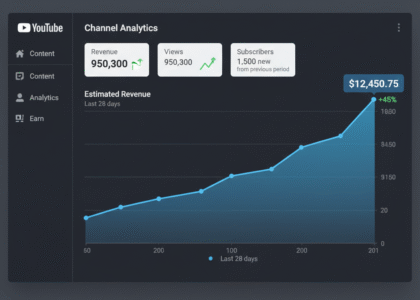Buying your first home is an exciting milestone, but it requires careful financial planning to ensure a smooth and stress-free process. A well-thought-out strategy can help you navigate the complexities of homeownership while avoiding costly mistakes. Here’s a step-by-step guide to help you make informed financial decisions when purchasing your first home.
1. Assess Your Financial Health
Before you start house hunting, take a close look at your finances. This will help you determine how much home you can afford without overextending yourself.
- Check Your Credit Score – A higher credit score can help you secure better mortgage rates.
- Calculate Your Debt-to-Income Ratio – Lenders use this to assess your ability to handle monthly mortgage payments.
- Review Your Savings – Ensure you have enough for a down payment, closing costs, and emergency funds.
2. Set a Realistic Budget: Buying Your First Home

Your budget should reflect your financial capabilities and long-term goals. Consider the following factors:
- Home Price – Choose a property that aligns with your income and expenses.
- Monthly Mortgage Payments – Factor in interest rates, loan terms, and property taxes.
- Hidden Costs – Account for homeowners insurance, maintenance, and potential repairs.
3. Save for a Down Payment: Buying Your First Home
A larger down payment can reduce your monthly mortgage payments and help you avoid private mortgage insurance (PMI).
- Aim for at Least 20% – This eliminates PMI and lowers long-term costs.
- Explore Down Payment Assistance Programs – First-time buyers may qualify for grants or low-interest loans.
- Automate Your Savings – Set up a dedicated savings account and contribute regularly.
4. Get Pre-Approved for a Mortgage
A mortgage pre-approval strengthens your position as a serious buyer and helps you understand how much you can borrow.
- Compare Lenders – Research different mortgage providers for the best rates.
- Understand Loan Types – Choose from conventional, FHA, VA, or USDA loans based on eligibility.
- Gather Required Documents – Lenders typically request proof of income, tax returns, and credit history.
5. Research the Housing Market
Understanding market conditions can help you time your purchase and negotiate better deals.
- Analyze Market Trends – Look at home prices, inventory levels, and interest rate forecasts.
- Choose the Right Location – Consider factors like job opportunities, school districts, and neighborhood amenities.
- Work with a Real Estate Agent – A knowledgeable agent can guide you through the buying process.
6. Factor in Closing Costs: Buying Your First Home

Closing costs typically range from 2% to 5% of the home’s purchase price. Be prepared for expenses such as:
- Loan Origination Fees
- Home Appraisal and Inspection Costs
- Title Insurance and Attorney Fees
7. Plan for Homeownership Expenses
Owning a home comes with ongoing costs beyond your mortgage payment.
- Property Taxes and Insurance – These can fluctuate based on location and home value.
- Utility Bills and Maintenance – Budget for repairs, landscaping, and unexpected expenses.
- Homeowners Association (HOA) Fees – If applicable, these fees cover community amenities and upkeep.
8. Consider Future Financial Goals
Buying a home is a significant commitment, so align your purchase with your long-term financial plans.
- Retirement Savings – Ensure you continue contributing to retirement accounts.
- Emergency Fund – Keep at least three to six months’ worth of expenses in savings.
- Investment Opportunities – Explore real estate or other assets for financial growth.
FAQs
1. How much money should I save before buying my first home?
Aim to save at least 20% of the home’s price for a down payment, plus extra for closing costs and emergency funds.
2. What is the best mortgage option for first-time buyers?
First-time buyers may benefit from FHA or VA loans, which offer lower down payment requirements.
3. How can I improve my chances of mortgage approval?
Maintain a good credit score, reduce debt, and ensure steady income before applying.
4. Is it better to rent or buy a home?
Buying is a good long-term investment if you plan to stay in one place for several years and can afford the costs.
Conclusion
Buying your first home is a major financial step, but with careful planning, you can make a smart and sustainable investment. Start by assessing your finances, setting a budget, and researching mortgage options. With the right strategy, you can achieve homeownership without unnecessary financial stress. For more expert financial tips, visit GetCashVibe today!






